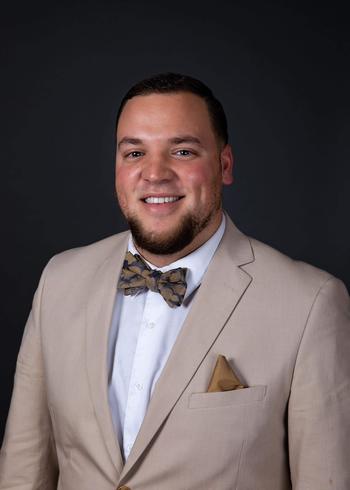
Recent graduates of the School of Education Master of School Administration (MSA) and participants of the First Americans' Educational Leadership (FAEL) Program were recently appointed to administrative roles in Robeson and Hoke counties.
Jeremiah Moore was promoted to principal at Pembroke Middle School, Rodrick Bartley was appointed assistant principal at Red Springs High School and Tiffany Tyler was appointed assistant principal at Sandy Grove Middle School.
American Indians represent less than 1% of school administrators in North Carolina.
"The university was established to train American Indian teachers and the FAEL program has built upon that foundation with a focus on the administrative role," stated Dr. Camille Goins, FAEL program director and assistant professor in the school administration program.
Since 2019, the FAEL program has supported 22 participants. Of the 21 participants who graduated with an MSA degree or completed the MSA add-on licensure, 14 serve in an administrative role and three serve in an instructional or academic coach position.
The School of Education has successfully received funding from the U.S. Department of Education Office of Indian Education to support American Indian teachers. However, the FAEL program was the first grant to prepare aspiring American Indian administrators for school leadership positions. "We are fortunate to have funding from the Office of Indian Education. This creates opportunities for our students to participate in innovative programming as they prepare to lead public schools in southeast North Carolina," stated Dr. Loury Floyd, dean of the School of Education.
The program has sought to institutionalize a culturally relevant program in the School of Education Educational Leadership Program. Tiffany Tyler, 2021 cohort alumnus, "Participating in the FAEL program provided a scope of how essential representation and culture is within the school setting. With the support and resources from the program, I gained a firm understanding of how to incorporate culture to make all students feel like they are heard, understood and represented."
The program has provided participants with financial support, pre-service training, mentoring support and induction support services during the first two years participants serve as an administrator.
"The FAEL program has emphasized with program participants the importance of being culturally responsive and bringing transformational approaches to leadership," stated Goins. The support has prepared participants to lead and work in high-needs schools with a high American Indian population to improve educational outcomes.
"The experience and leadership I had as a participant in the FAEL cohort have been a massive help in my role as an assistant principal. The leadership advice and training from the FAEL team made me feel confident as a new administrator with the knowledge I have received", stated Rodrick Bartley, 2022 cohort alumnus.
Moore, 2020 cohort alumnus, stated, "As a proud participant of the FAEL program, my capacity for engaging and building school culture has heightened. FAEL has provided me and other members of my cohort with opportunities to present at conferences, facilitate and develop plans around school turnaround work, such as creating responsive PDSA models (Plan, Do, Study, Act), and nurtured an appreciation for coaching over evaluation. I am grateful to have received the rigorous development associated with the FAEL project. I truly attribute my success in school administration to the consistent dissemination of support through the program."
Three program participants have presented at national conferences, including Bartley and Moore.
The FAEL project is funded by a five-year, $1.1 million grant from the U.S. Department of Education to address the shortage of American Indian administrators in the state's public school districts with a large American Indian student population. For information about the FAEL Program, visit uncp.edu/fael